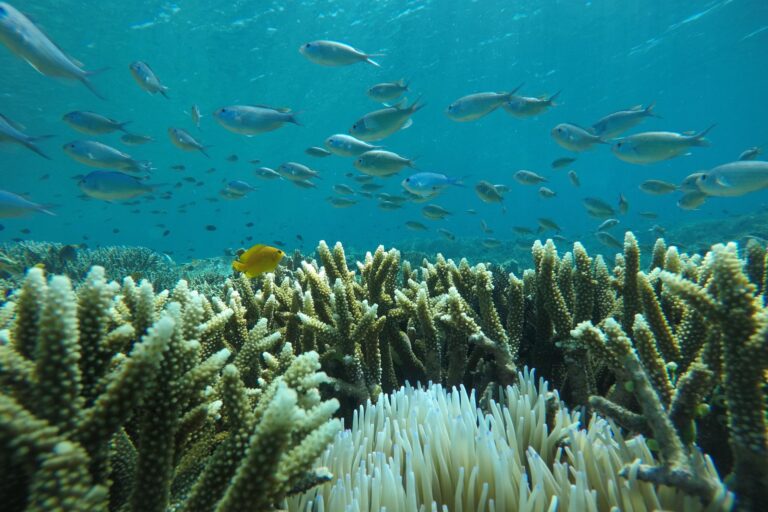A new assessment finds that the world’s oceans crossed the safe threshold for acidification in 2020, breaching a key planetary boundary and posing serious threats to marine life. Ocean acidification is caused when excess atmospheric carbon dioxide, resulting from human activities like burning fossil fuels, dissolves in seawater, forming carbonic acid that increases the water’s acidity. The reduced availability of carbonate ions can affect the survival of marine species that build calcium carbonate shells and skeletons, including coral, shellfish and crustaceans. For this study, researchers looked at a key indicator of ocean acidification called aragonite saturation state, a measure of how well seawater supports the formation of aragonite, a form of calcium carbonate. They estimated aragonite saturation state over time at different depths in the ocean. They also compared that information with biological tolerance thresholds for species like coral and sea snails, or the levels of aragonite saturation below which the marine animals experience stress. Previously, scientists established that a 20% drop in aragonite saturation, compared with preindustrial levels, was the threshold for breaching the ocean acidification planetary boundary. The last global assessment in 2023, led by Katherine Richardson with the Globe Institute at the University of Copenhagen, Denmark, found a 19% decrease. The new study’s findings confirm that this boundary has now been crossed. Richardson, who wasn’t involved with the latest research, told Mongabay by email she was “not at all surprised” by the new finding. “We said it was on the edge in our last assessment and, as…This article was originally published on Mongabay
Search
Recent Research
Want your Blog Article featured on our website?
Research
Featured News
Explaining Katsina’s Massive Leap to 2nd Position in the 2025 Climate Governance Ranking
In 2024, during the first edition of the Subnational Climate Governance Performance Rating and Ranking,
COP30: Firm to connect institutions with international climate finance opportunities
SISTME, a climate change and biodiversity conservation consulting firm based in Argentina, has offered to
From resistance to planetary governance, Indigenous women redefine global climate action
While world leaders negotiate behind closed doors in the Blue Zone of COP30, Indigenous Women
Sahara Group Foundation launches 16th Sahara Go Recycling Hub to boost environmental sustainability, economic empowerment
Sahara Group Foundation, the corporate social impact arm of Sahara Group, has commissioned its 16th
Climate finance is the lifeblood of climate action – Simon Stiell at COP30
Remarks delivered by UN Climate Change Executive Secretary, Simon Stiell, at the third High-Level Ministerial
UNDP, REA, GEF commission Plateau solar mini-grid to power agricultural value chains, empower rural communities
The United Nations Development Programme (UNDP), in partnership with the Rural Electrification Agency (REA) and
COP30: Africa urges world leaders to turn pledges into action
Africa has called on the world leaders to turn their pledges into action regarding the
Thousands join global marches calling on govts at COP30 to deliver climate justice
An estimated 30,000 people marched through the Brazilian city of Belém on Saturday, November 15,


